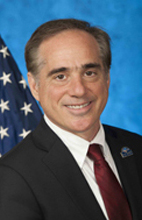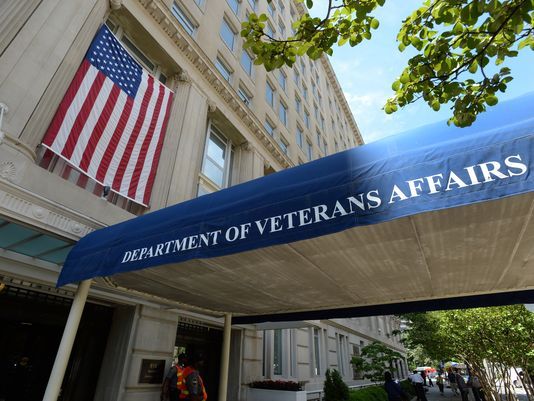On a Friday afternoon in late February, the US Department of Veterans Affairs filed a motion with the Court of Appeals for Veterans Claims. In this motion, the VA asked the court to stay (lawyer-speak for “pause”) the effect of the court’s decision in a case called Staab v. Shulkin. The Staab case addresses the question of when the VA must reimburse veterans who receive emergency health care outside of the VA system. In what can only be described as blinding speed (at least as far as the legal system is concerned), the court denied the VA’s motion the following Tuesday.
The court’s decision in Staab and its subsequent denial of the VA’s motion to stay appear to have placed the VA into a bit of a difficult position, if not an economic panic. On the one hand, the VA is charged with the responsibility of caring for the nation’s veterans. On the other, in its argument to the court the VA predicted that the Staab decision may come with a price tag of more than $6 billion – which are funds that it simply doesn’t have available. Newly confirmed VA Secretary David Shulkin acknowledges his responsibility to provide care for veterans, but at least certain members of Congress appear to indicate the government is not interested in providing the additional funds.
The Staab Decision
Richard Staab was an Air Force veteran living in Minnesota who qualified to participate in the VA health care system. In 2015, Staab suffered a heart attack and stroke. He was rushed to a nearby, non-VA hospital and received treatment. A portion of the care was covered by Medicare, but Staab ultimately paid about $48,000 in out-of-pocket medical expenses. He submitted a claim to the VA for reimbursement of these expenses. The VA denied claim on the basis of a 2009 regulation found at 17 C.F.R. § 17.1002(f). Under this regulation, the VA will only reimburse a veteran if the “veteran has no coverage under a health-plan contract for payment or reimbursement, in whole or in part, for the emergency treatment.” So, because some of Staab’s expenses were partially covered by Medicare, the VA denied his claim for reimbursement of the remaining amount.
Staab appealed the VA’s decision to the Court of Appeals for Veterans Claims. He pointed out that the VA’s regulation conflicted with a change in the law made by Congress in 2010. That change modified the language of 38 U.S.C. § 1725, which is the statute upon which the VA’s regulation is based. As noted by the court, the purpose of this amendment was to “allow the VA to reimburse veterans for treatment in a non-VA facility if they have a third-party insurer that would pay a portion of the emergency care.”
H.R. 1377 would modify current law so that a veteran who has outside insurance would be eligible for reimbursement in the event that the outside insurance does not cover the full amount of the emergency care. VA would be authorized to cover the difference between the amount the veteran’s insurance will pay and the total cost of care. In essence, VA would become the payer of last resort in such cases. This would keep the veteran from being burdened by medical fees with no insurance with which to pay them.
155 Cong. Rec. S13468 (Dec. 18, 2009) (Remarks from Sen. D. Akaka, Chairman of the Committee on Veterans’ Affairs).
The court determined that even though the VA’s regulation was fine when it was originally adopted in 2009, it needed to be changed after Congress changed the corresponding statute in in 2010. It noted that the VA had the opportunity to change the regulation to comply with the statute, but “refused” to do so. The court therefore not only granted Staab’s appeal, but also struck down the VA’s regulation as invalid.
The Fallout from Staab
The fact that the Court struck down the VA’s regulation had a far-reaching impact. Staab was certainly not the only veteran who sought reimbursement for emergency, private healthcare. The VA appealed the decision of the Court of Appeals for Veterans Claims to the next highest level — the US Court of Appeals for the Federal Circuit. The case remains pending at the Federal Circuit, but the VA is clearly nervous about the economic impact of the decision by the Veteran’s Court.
On February 17, 2017, the VA filed a motion to stay the precedential effect of the Veterans Court’s decision. In its written argument, the VA informed the court that is had suspended adjudication of 373,000 claims for reimbursement of emergency, private health services until it could figure out how to deal with the effect of the Staab decision. The agency estimated that, unless overturned by the Federal Circuit, the Staab decision would result in a financial cost of up to $273 million in 2017, and over $6.5 billion over the next decade.
Two business days later the court summarily denied the motion.
Staab catches Congress’s attention

Already have an account? Sign In
Two ways to continue to read this article.
Subscribe
$1.99
every 4 weeks
- Unlimited access to all articles
- Support independent journalism
- Ad-free reading experience
Subscribe Now
Recurring Monthly. Cancel Anytime.

The issue has also managed to catch the eye of some legislators as well. During the confirmation hearing for David Shulkin, Senator Mike Rounds (R – S.D.) discussed the fact that a handful of senators attempted to introduce legislation that would modify the statute at issue in the Staab decision. Although the proposed changes would negate the financial impact to the VA, they would ultimately do so by allowing the VA to continue to deny claims by veterans for reimbursement of emergency health care costs.
For his part, Dr. Shulkin informed the senate that he “does not believe that the court interpreted the statute correctly … and so we will see what happens. But in the meantime, I am not going to allow veterans to be put in the middle like we have been continuing to [do.] We are going to move forward and we will do it with speed to make sure we start paying these bills as soon as we possibly can.”
Senator Rounds then asked the million dollar question (or, in this case, the $10 billion dollar question): “You don’t have the money in your budget. Are you prepared to ask Congress for appropriate funds to get the bill paid[?]”
Appearing to sense the difficult position he was in, Dr. Shuklin responded that, “if we do not get additional funds authorized, that money will come from the services we provide today to veterans and they will have less health care available. So yes, we will come to you and ask you to help support with additional funding this new benefit if it is not overturned in an appeal by the Department of Justice. But make note that it was a benefit directed by Congress.”
Remaining questions
The Staab decision reflects the tension that lies beneath the surface of many issues facing our nation’s treatment of its veterans. On the one hand, we want to support our veterans. Veterans constitute a shrinking minority of the population who volunteer to protect the American way of life. They provide examples of patriotism for our children and we glorify their sacrifice in Hollywood movies and Nashville songs. Social media is rife with memes and informal groups dedicated to proclaiming our support for them.
On the other the hand — as fairly noted by Senator Rounds — it takes lots and lots of money to run to provide benefits to veterans. Although it happens from time to time, very few sitting Congressmen or Senators would dare to issue a press release advocating for the defunding or eliminating veterans benefits programs. At the same time, there have been no reports of Congressmen beating down now-Secretary Shulkin’s door with offers of $10 billion dollars either. However, unless the VA is able to convince the Federal Circuit that the Veterans Court made a mistake, that is exactly what the VA will need in order to provide benefits at the level mandated by Congress.











COMMENTS